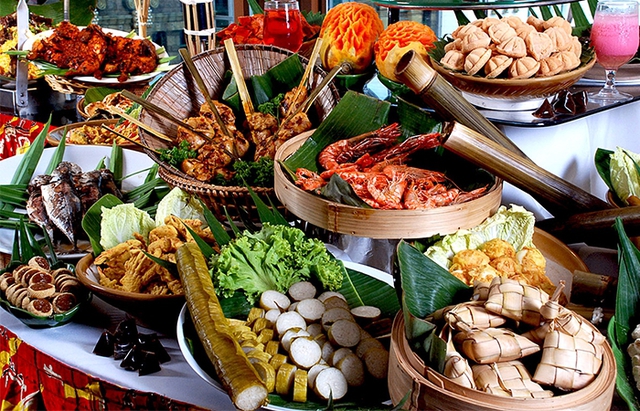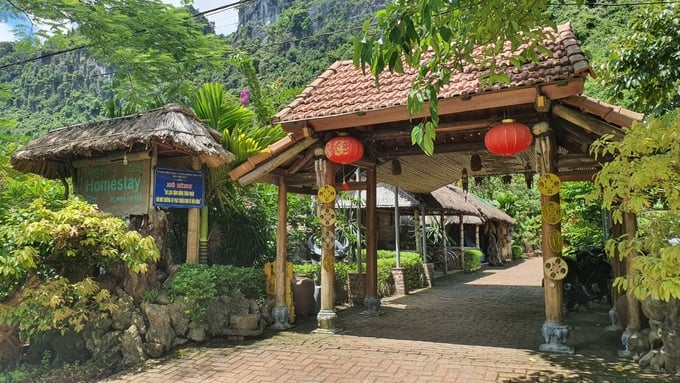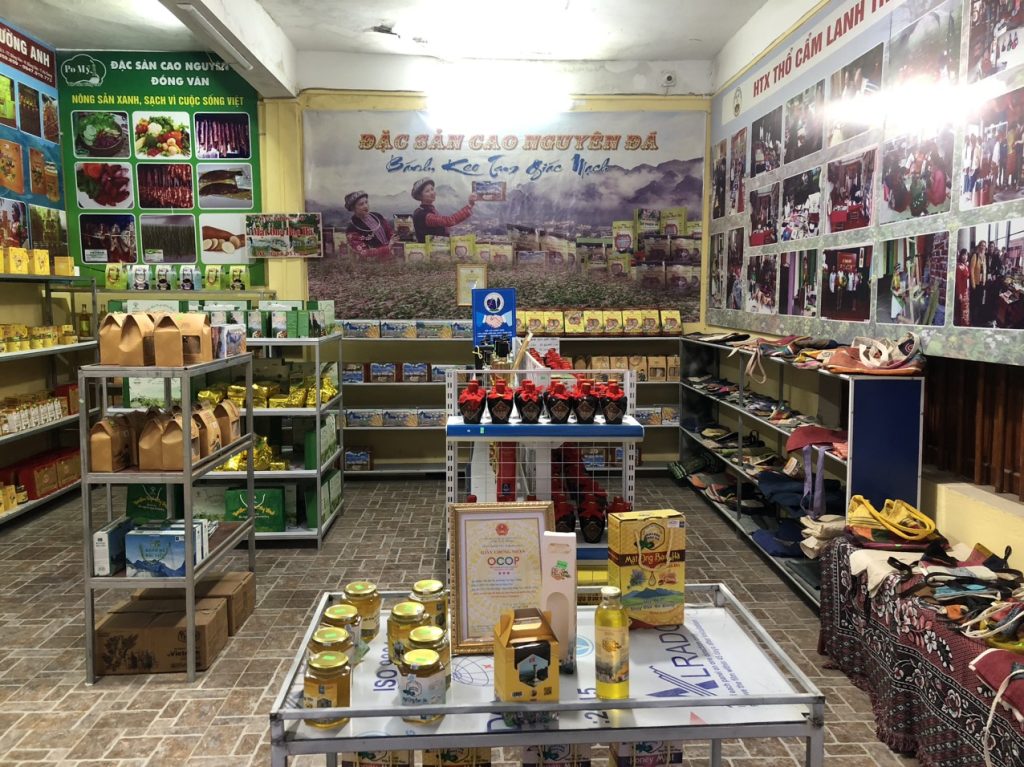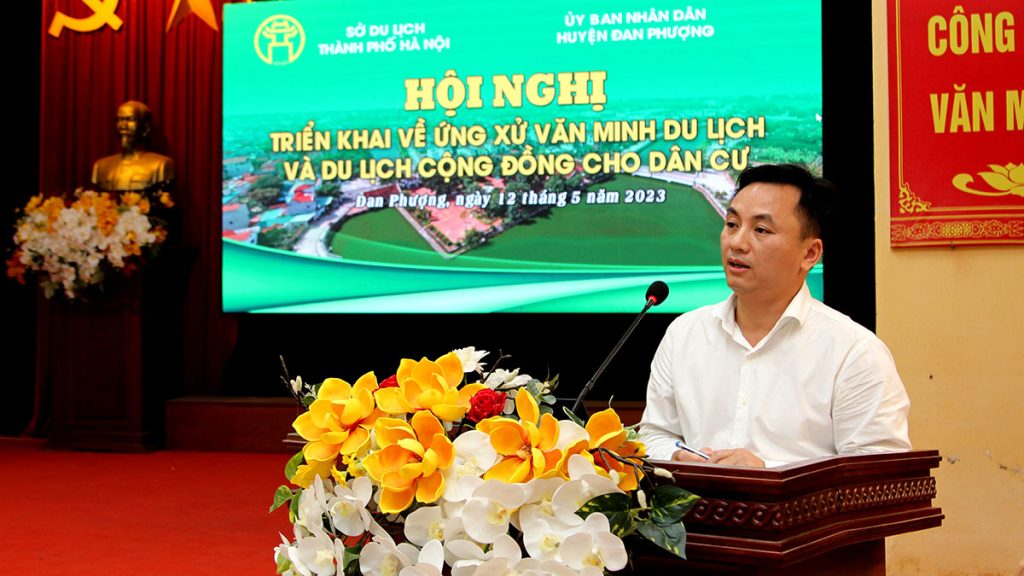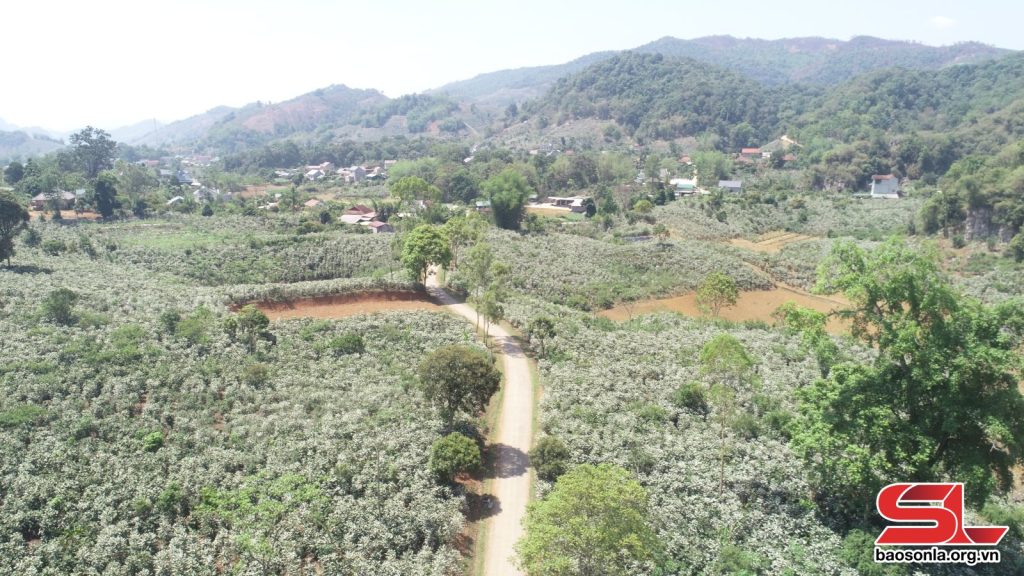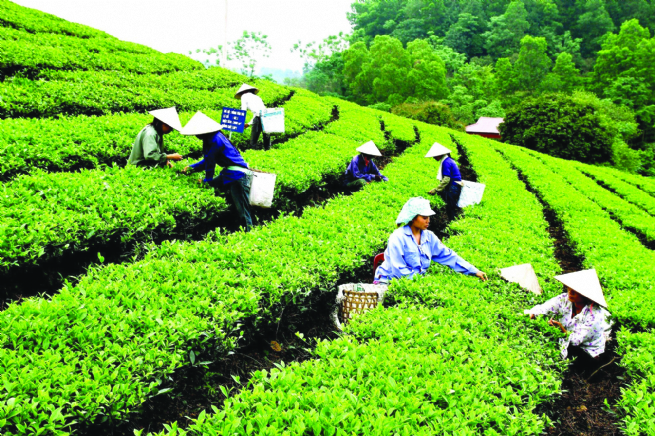
Thai Nguyen province is known for its immense tea fields
Thai Nguyen has all potential in tourism resources to develop community-based tourism, especially in Thai Nguyen City, Song Cong City, Dai Tu, Vo Nhai, Phu Luong and Dinh Hoa districts. Community tourism coupled with agriculture in these localities has received the attention of authorities, people and tourists.
Located in the heart of Tan Cuong tea area (Thai Nguyen City), Hao Dat Tea Cooperative currently has 30 members, with a tea-growing area of over 10ha. The cooperative has applied strict production processes on food hygiene and safety and quality management programs such as VietGAP and QR on its self-contained factory system which covers a total area of over 2,000 square meters. On average, each year, the cooperative can process 700-900 tons of fresh bud tea and supply 160-200 tons of dried bud tea to the market. At present, the cooperative has three tea products recognized as 4-star OCOP products and its “Non Tom” tea is certified as a 5-star national OCOP product and granted a National Typical Rural Industrial Product Certificate. Conveniently lying on the route to Nui Coc Lake National Tourist Area, the cooperative has actively developed its 6th product category – countryside tourism services and marketing the One Commune One Product (OCOP) Program. It has built a spacious tea cultural space that consists of different areas (tea-growing, modern and manual processing, product packaging, community activity, tea enjoyment and product display). With a beautiful space and landscape, every year, the cooperative attracts many domestic and foreign tourists to visit and learn how to grow, tend and process tea, learn tea-making art, make green tea peanut candies and make food with tea ingredients.
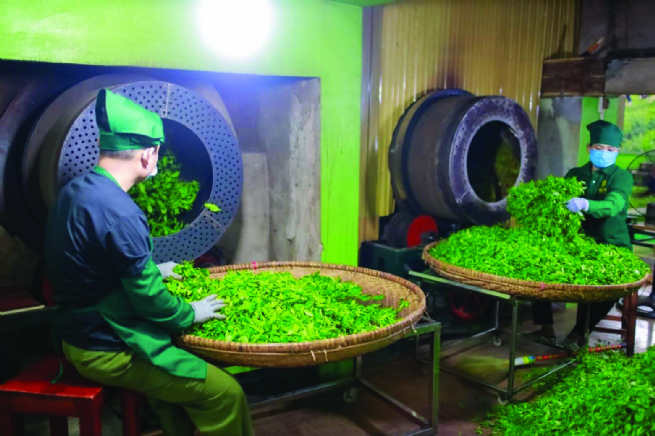
The province has various kinds of tea products
Among OCOP products, “Tay ethnic cultural tourism of Thai Hai Village” (Thai Hai ecological stilt house village conservation area) is a unique product recognized as a 4-star OCOP product by the Provincial People’s Committee in 2020. The conservation area in Thinh Duc Commune, Thai Nguyen City was built in 2003 and has been opened to welcome tourists since 2011. Thai Hai Village has 30 traditional stilt houses – the living place of the Tay and Nung ethnic communities. Coming to the village, visitors can experience a space imbued with ethnic culture and meet villagers in traditional costumes. Traditional occupations such as making herbal medicine, brewing wine, processing tea and practicing the Then culture in daily life. Since it was brought into operation, Thai Hai Village has welcomed thousands of domestic and international visitors. The village has twice received the ASEAN Award for community tourism and sustainable tourism.
The above models show that OCOP products are the foundation to promote community tourism development. Mr. Tran Nho Huong, Vice Chair of the Coordination Office of the National Target Program on New Rural Development in Thai Nguyen province, said that the province now has 129 OCOP products recognized as a 3-star class or higher (54 three-star products, 73 four-star products and 2 five-star national products); formed over 100 showrooms to display, introduce and sell OCOP products throughout the province. Some places have built tourist attractions with experience services that have attracted tens of thousands of visitors. This is the starting point for Thai Nguyen province to implement the rural tourism development program under the National Target Program on New Rural Development in the 2021-2025 period and contribute to socioeconomic development.
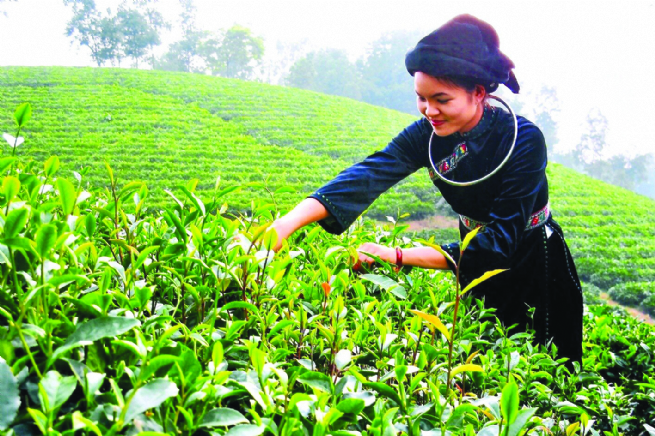
Thai Nguyen province aims to combine tea promotion and tourism development
To effectively develop agricultural tourism in association with new rural construction and the OCOP Program in the 2021-2025 period, Thai Nguyen province has continued to implement solutions like planning and administering agricultural tourism development by locality; allocating counterpart funds from the National Target Program on New Rural Development and integrating other funding sources to implement pilot rural tourism models; increasing infrastructure investment to give a positive facelift to rural appearance, create jobs and increase incomes from various forms of tourism and agricultural product selling; fostering human resource training for tourism businesses; strengthening communications on rural tourism programs; developing mechanisms and policies that are attractive enough to interest businesses to invest in agritourism and support people to participate in agritourism development associated with the OCOP Program and the New Rural Development Program.
By Thanh Nga
Vietnam Business Forum – vccinews.com

